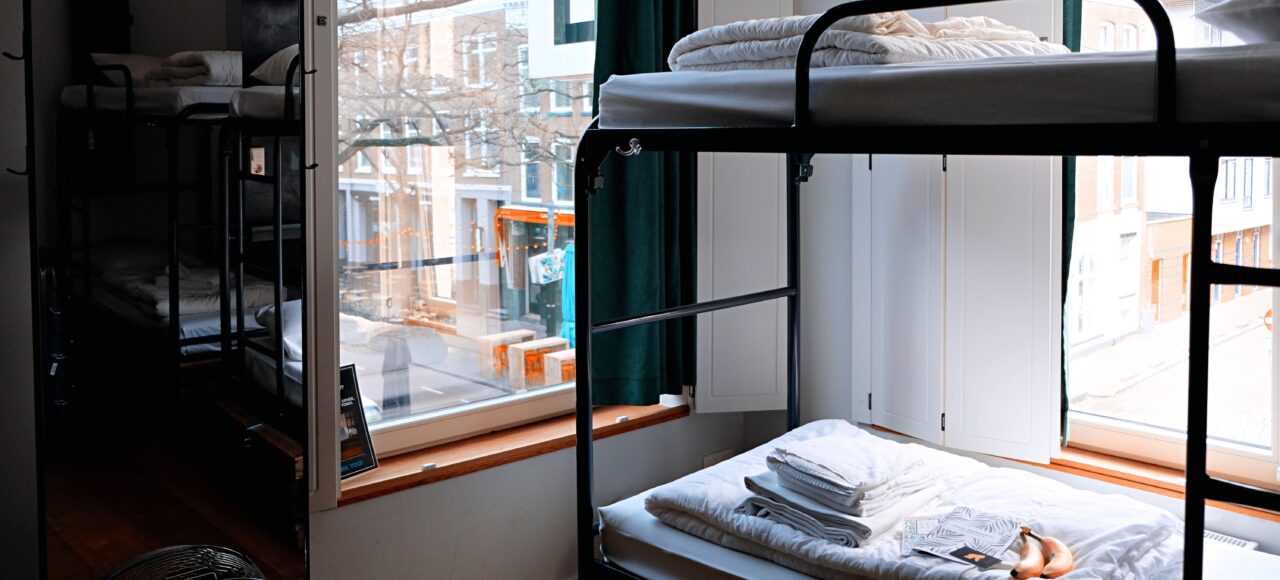
Is Living Off Campus Right for You?
Each year, thousands of students begin their educational journey. Whether fresh out of high school or returning to college later in life, they decide it’s time to get a degree. Many factors go into choosing a school, including the majors offered, campus culture, and distance from home. Notably, more than half of the student population attends universities less than 100 miles away from home. Students may choose not to stray far for many reasons, including living off campus.
Many choose to live off campus, whether in their own home or with their parents. Indeed, 40% of private and 64% of public college students do not stay in university housing. This option allows individuals to remain close to their families, friends, and jobs. Additionally, many are not interested in dorm life.
Many universities across the United States have run into scandal after scandal with the state of their student housing. Overcrowded rooms, moldy walls, and rodent infestations plague dormitories. This problem is not limited to the US but affects schools worldwide, including in the UK. Of course, most colleges offer reasonable accommodations for their students. Living on campus has many benefits, and many students desire the “real college” experience. But the bad apples give dorms a bad name.

Pros of Living Off Campus
A large portion of the student population enjoys the benefits of living off campus. This choice can beneficially impact them socially, financially, and academically, as well as health-wise. Indeed, some commuter students don’t even consider living on campus. From day one, they know they’re staying home.
Older and non-traditional students may have families and jobs and simply cannot live in a dormitory. They can’t uproot their life to enjoy the full college experience. Alternatively, they may not want to live with people decades younger than them, individuals who live wildly different lives. On the other hand, younger and traditional students know they don’t want a roommate or a tiny room. They may also have a job and responsibilities of their own. Basically, dorm life isn’t for everyone.
Keep reading to learn more about the pros of living off campus.
1. Lower Cost
It’s no secret that college is expensive. When you add tuition, textbooks, and dorm fees, your semesterly bills rise quickly. On average, it costs an additional $8,000 to $15,000 per year. As a bachelor’s degree usually takes 4 to 5 years for most students, you may be looking at $24,000 to $75,000 more in loans or tuition expenses just from dorm life alone. Thus, a good way to save money is to try living off campus.
Notably, students who are homeowners or renters are likely paying the same yearly $8,000 to $15,000 in mortgage or rent already. There’s not too much of a difference there. But dorms often cost more than the normal expenses of students staying with family or roommates off-campus. Many parents allow their children to stay for free while they attend college. And roommates will enable you to split rent two or more ways, lightening the load. As a result, staying off-campus can help save money or prevent you from getting outrageous student loans.

2. Stay Close to Loved Ones
While the thought of leaving town and meeting new people in a new city sounds appealing to some, others don’t want to leave their friends and family behind. They want to stay close to the people they love and care about. It’s important to ensure you’re allowing yourself to grow and pursue your dreams; understandably, those personal connections are also important. Indeed, technology enables us to keep in touch with others a lot easier nowadays. However, it’s not the same.
Virtual game nights, face timing, and other online meet-up options have made this transition easier for some. Going to college doesn’t mean abandoning those you care about. You can still communicate online and visit during breaks. But technology gaps, especially with older family members, mean less frequent and shorter interactions with certain loved ones. Additionally, it can be hard to find a time when everyone is free for a long call.
Thus, living off campus and at home allows students to stay in close contact with their friends, partners, and loved ones. Whether you have responsibilities related to your family or aren’t ready to leave the nest, this option can help you keep your priorities.
3. Online Classes
Students who want to stay home for their college career may also consider taking virtual classes or attending a fully online college. Indeed, these courses and schools are often cheaper than traditional ones. And you don’t have to worry about commuting.
Notably, this option can help students with families and jobs complete their education, whereas it wouldn’t have been possible otherwise. Consider how much time goes into parenting, working, and schooling. There often isn’t enough time in the day. If you’re already living off campus to take care of your family or continue working, you may want to consider online classes.
There are many benefits to attending virtual classes, especially if they’re asynchronous. Asynchronous courses allow students to complete their lesson at any time during a given week. Thus, they don’t need to worry about lecture times and can do the work whenever they’re free.
This type of program became more popular during the pandemic, and many colleges continue to offer virtual options. Indeed, it doesn’t make a lot of sense to live on campus and enroll in online classes. You’re spending the extra money to do something you could from the comfort of your home. But students who already live off campus can benefit from this alternative study option.

4. Comfort and Privacy
Understandably, dorm life isn’t for everyone. You’re often paired with a complete stranger with whom you share a small room. There are communal bathrooms, study spaces, and eating areas. Truly, there are very few times that you will be alone. Many people don’t feel that comfortable with strangers. And not all college roommates will become friends. It’s a lot to deal with, especially if your only living experience has been with your family. As a result, living off campus sounds like a dream come true to some.
Additionally, you’ll have the same comforts you’re used to when you live at home. Your own bed, pets, and all of your belongings. Dorm rooms are small; you won’t be able to bring most of your things. Living off campus may appeal to those uncomfortable in these living spaces. Indeed, dorm life can be stressful. Individuals with mood disorders may see more mental health symptoms on campus than off.
Also, students with additional medical needs may not have access to the same accommodations in a dorm. Unfortunately, the things that make your life easier and more comfortable may not be available on campus. Most colleges will provide reasonable accommodations when asked – and if it’s your goal to live on campus, you should make sure they give you what you’re entitled to – but they may not be able to provide all of your comforts. Ultimately, you should decide what’s best for you and what suits your goals.
5. Freedom
Truly, dorm life can seem like freedom to a lot of students. They’re away from their parents, unsupervised, and can live how they want. But there are still rules. And some of those rules are deal-breakers for some.
Notably, people living in dorms can’t own pets, cook certain meals, play music at certain hours, or decorate how they want to. There may also be rules about who they can bring inside. Most of these rules are in place for a good reason: student safety. Pets may endanger people due to behavioral issues or allergies, loud music disrupts sleep and study times, and strangers in the building pose an obvious danger.
Regardless, it’s understandable that some students don’t want to deal with these rules. Maybe they have a beloved dog or cat that won’t have a place to stay otherwise. Perhaps they have food sensitivities and can’t eat the college’s food, but also can’t cook in the dorm. And others just want to make their living space comfortable.
Regardless of your reasons, if dorm rules are a deal-breaker for you, living off campus resolves many of these issues. You may still have to follow your parents’ or roommates’ rules elsewhere, but there’s more opportunity for negotiation.

Cons to Living Off Campus
Even if some of the above may seem scary, if you want to stay on campus, you should. For most, college is a time for self-exploration, growth, and change. Staying at home with the same routine may stifle that growth.
Additionally, living off campus isn’t for everyone. Many students enjoy getting out of the house and their first experience of freedom. There are no overbearing parents or annoying siblings in your dorm room. You can talk to whomever you want, stay up as late as you want, and go to parties. Basically, it can be a great first step into adulthood. Below, we’ll go over some of the cons of staying home.
1. The Commute
The commute can be killer, depending on how far you live from campus. You may need to drive through overcrowded highways and during rush hour traffic. Weather, especially in the colder months, may make it too dangerous to make the journey. Thus, you may not make it to important lectures or exams.
Also, the cost of driving so much can take a toll on your vehicle. If you’re going to-and-from work and then to-and-from school, you may be putting hundreds of miles on your car daily. As a result, you’ll spend a lot more on gas fill-ups and maintenance.
You’ll also dedicate more time out of your day to preparing for class. Indeed, you’ll need to get ready, leave early enough to account for traffic, find parking, and still walk to class. Parking options on campuses across the country are notoriously awful. Schools enroll more students than they have spots available. And, unfortunately, paying extra for a parking pass doesn’t guarantee one will be available.

2. Lack of Community Connection
Notably, the community you build is a huge benefit of staying on campus. You’ll get to know your peers, build a network, join groups, and have fun. Having fun is important in college – it helps you avoid burnout, relax, and take a break before fully entering the workforce.
Undeniably, those living off campus miss out on some of the community experience. You’ll often miss the late-night events and talks in the dorm. And you won’t get as many opportunities to meet new people, make new friends, and overall enjoy your time in college. There are definitely benefits to staying at home. You’re more comfortable there, but sometimes good things come from discomfort. It can be a catalyst for personal and professional growth.
3. No Independence
As we mentioned, living off campus can stifle growth, especially if you’re staying at home with your parents. Parents often treat their adult children like children whether they intend to or not. You may have the same rules at 19 as you did at 14. Parents still see you as their baby and want to keep you safe. While this is understandable, it can delay the transition from child to adult.
Indeed, consider how many college students don’t know how to do their own laundry, schedule appointments, and handle important decisions. These years are an important transitional period where individuals learn to be on their own and care for themselves. After college, many fully enter the job market. While many work part-time during school, graduates will get their first full-time job. Then, they’ll often move out on their own or with roommates.
And roommates won’t be willing to take on your parents’ roles. As a result, it’s important to learn how to be independent. Campus life is a great stepping stone, while still not the same as having your own place.

4. More Responsibilities
If you’re living in your own house or apartment, you will have more responsibilities than in a dorm. You’ll be responsible for repairs, replacing furniture, stocking the fridge, and general upkeep. Obviously, the university will take care of plumbing, heating, and vital functions in a dorm. You’ll still need to clean your own space, but you won’t be out $10,000 if the furnace fails.
Overall, living off campus means there’s more to take care of. If you’re looking to focus less on housework and more on your studies, it may make more sense to try dorm life.
5. It Can Be More Expensive
With rent and mortgages rising, getting your own place may be more expensive. You must look at your options and weigh the costs. Colleges in rural areas may have more affordable housing, but if you’re going to school in New York, you may be priced out of any off-campus housing.
Additionally, dorm fees cover all utilities. Mortgages and most rental prices do not. Thus, if your rent is cheaper at first glance, the cost of sewage, electricity, gas, and internet services may break your wallet.
Basically, it’s ideal to avoid extra student loans. That additional $75,000 in dorm fees will profoundly impact your monthly repayments in the future. But living off campus may be the more expensive option if you don’t have a safe, cheaper place to stay. You should do what’s best for your well-being, wallet, and goals. For some, the extra cost may be more than worth it.
Final Thoughts
Lakewood University is an accredited online school that offers a variety of degree and certificate programs. We have rolling enrollments and asynchronous courses. In other words, you don’t have to worry about missing a lecture or running late to class. If you plan on enrolling in college while working, Lakewood University offers the flexibility you need to earn your degree.
Don’t hesitate – reach out to our admissions department today to learn more!




